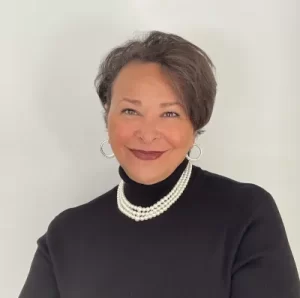Texas Governor: Universities Cannot Use Diversity, Equity or Inclusion in Hiring
The University of Texas at El Paso to review its hiring processes in wake of governor’s office diversity directive

Get stories like this delivered straight to your inbox. Sign up for The 74 Newsletter
Inclusive and equitable institutions that use diversity, equity and inclusion in their hiring benefit everyone, and a recent directive from the Texas governor saying otherwise is “grossly misconstruing” federal anti-discrimination law, a higher education diversity official said.
Paulette Granberry Russell, president of the National Association of Diversity Officers in Higher Education, came out strongly against a Feb. 4 directive from the office of Texas Gov. Greg Abbott that called it illegal for state agencies and public universities to use diversity, equity and inclusion (DEI) in hiring decisions.

In a directive, Abbott’s office stated that DEI has been used in recent years to favor some demographic groups “to the detriment of others.” The directive states that employment decisions should be based on merit without additional DEI consideration.
“The memo and its claims are ridiculous and beyond an attempt for state government overreach,” said Granberry Russell, a licensed attorney who served as senior adviser for diversity to the president of Michigan State University before her retirement in 2020.
DEI initiatives have been used in the United States since the Civil Rights movement in the 1960s. Their goals are to create discrimination- and harassment-free workplaces for people from different backgrounds, and to give them opportunities for professional development.
Granberry Russell said that inclusive and equitable institutions benefit everyone, and that the recent memo from Abbott’s office is twisting federal anti-discrimination laws to fit his and his administration’s political agenda and to silence efforts to advance equity in the U.S., which has struggled with its founding promise of justice and liberty for all.
“They are just one more step in a broader assault on the basic underpinnings of diversity, equity and inclusion, terms that some have sought to turn into dog whistles because they have not bothered to understand the basic history of America and the principles that can set it on a brighter path forward,” she said.
Granberry Russell said the 1964 Civil Rights Act, to include Title VI and Title VII, Title IX of the Education Amendments Act of 1972, the Americans with Disabilities Act of 1990, and the Vietnam Era Veterans’ Readjustment Assistance Act, and federal regulations that interpret these laws, prohibit discrimination, including discrimination based on race, gender, ethnicity, national origin, disability and veteran status.

Officials at the University of Texas at El Paso issued a brief statement in response to an El Paso Matters request for comment about how this DEI issue will affect the campus. Several of its websites speak to the institution’s commitment to DEI because of how it benefits students.
“The university is currently reviewing the matters addressed in the letter,” the email read.
As of Feb. 10, 41 of the 44 faculty and executive employment opportunities asked applicants to include statements of contributions to, commitment to or promotion of DEI and sometimes access or accessibility.
An entry for an assistant professor in social work asks candidates to describe how they promote DEI and accessibility through their service, instruction and research/scholarship, and how the candidates would begin or continue to implement such relevant practices at UTEP and the Department of Social Work.
In a request for applicants for an assistant professor of chemistry position, the entry reads “To sustain and enhance our commitment (to a culture of inclusive excellence), UTEP hires and invests in faculty who value our culture of care and the success of students from diverse backgrounds. As such, we request a “Broadening Participation” statement of how you would approach contributing to that culture of Inclusive Excellence.”
UTEP had the highest percentage of Hispanic tenured faculty among the country’s largest research universities, according to fall 2021 data from the Integrated Postsecondary Education Data System. IPEDS showed that 31% of UTEP’s tenured professors were Hispanic, which was more than double the next closest institutions surveyed. Several universities had at least 10% of their faculty identify as Hispanic.
As for other institutions in the state, Texas Tech University officials ordered last week the elimination of DEI consideration in their hiring practices after a conservative group questioned how the institution’s biology department rated candidates on their commitment to DEI as part of the hiring process.
Discussion of DEI became part of a Texas Senate Finance Committee meeting on Feb. 8. Sen. Joan Huffman, R-Houston, the committee chair, said several committee members were concerned with the number of state university systems that used DEI initiatives as part of the hiring process. According to a story in the Austin American-Statesman, she expected legislators to continue discussions on how to stop that practice, and ensure that hiring at the state’s institutions of higher education are based only on merit.
“My point of bringing this up today and having the beginning of a discussion is to let the universities know the budget writers are paying attention,” Huffman said.
However, Black and Latino lawmakers and members of the state’s chapter of the NAACP on Tuesday denounced the recent directive and some called for the leadership of the country’s major sports organizations, to include the NCAA, to not host any of their championship games in the state until Abbott rescinds his DEI order to state agencies and universities.
This article first appeared on El Paso Matters and is republished here under a Creative Commons license.
Get stories like these delivered straight to your inbox. Sign up for The 74 Newsletter

;)